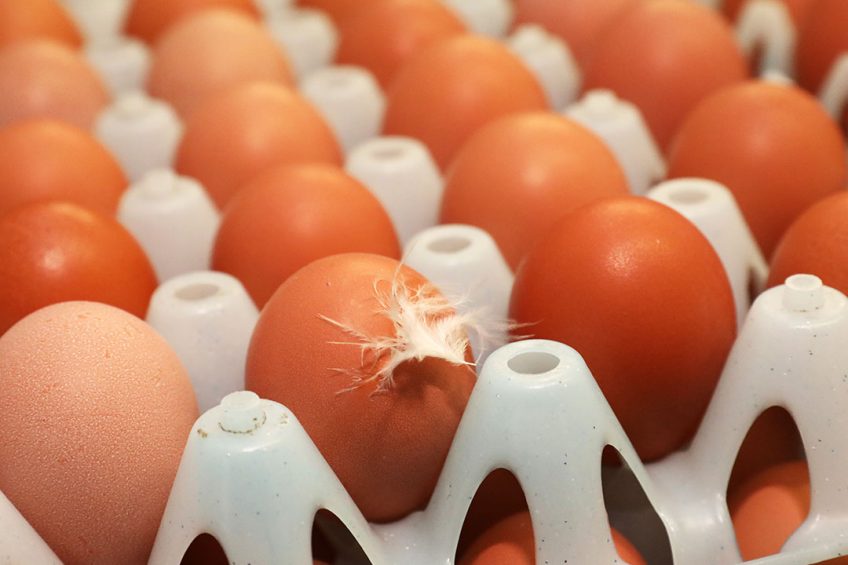Winning strategies to increase egg sales

Extolling the health benefits of eggs and entering untapped markets are 2 areas where the global poultry sector needs to do more, according to a leading food academic. Professor David Hughes, professor of food marketing at Imperial College London, said consumers still didn’t understand the myriad of health benefits of natural eggs.
The sector needs to celebrate the naturalness and nutrition of “clean label” eggs, saying it needed to stress how eggs are excellent are supporting the immune systems of your family, are great sources of protein and contained added carotenoids. Speaking at the International Egg Commission’s business insights webinar, Prof Hughes added that the sector should also look at selling more eggs to the pet sector, highlighting the increasing demand among families to buy dogs during the Covid-19 pandemic.
He said human and dog diets were converging and that pampered pups wanted posh food, singling out Nestle Purina buying the premium petfood player Lily’s Kitchen last spring. Purina are promoting eggs as a wonderful source of protein with their senior nutritionist Jan Dempsey saying: “Eggs are considered a gold standard because they’re almost the closest you can get to 100% complete, as far as protein goes.”
Food markets
Turning to the wider European markets, Prof Hughes predicted that over the next few years traditional supermarkets would lose market share to discounters with reduce product range and the online sector. Kantar has reported that by 225 the online sector will be taking 46% of the market, followed by discounters (24%) and supermarkets (15%). There will be increased pressure on grocery retail prices.
During his presentation, Prof Hughes highlighted that supermarkets were trying to cover the rise of the discounters. For example, Tesco’s online offer for eggs now had 30 SKUs with 12 Tesco label and 18 branded products, ranging from 8p/egg to price match Aldi’s cheapest offer to 42p/egg for the Clarence Court label.
Opportunities for the egg industry remain untappedEmphasising on healthy living and nutrition among consumers brings a big opportunity for the egg sector, according to young egg industry leaders.
However, there were also massive changes taking place in the restaurant meal delivery sector, accelerated by Covid-19. Just Eat Takeaway acquired Grubhub for US$ 7.3 bn to create the largest food delivery firm outside China in June 2020. Similarly, there had been huge growth in the ready-to-eat meal market, with German company HelloFresh acquiring Factor75 in November and now having a market capitalisation of US$ 12bn. These changes, he said, had implications for the egg sector, adding that the industry had still not really successfully promoted eggs as a wholesome, natural snack.
Sustainability issues not dimmed by Covid-19
Climate change and sustainability issues had not been dimmed by Covid-19 with Kantar reporting growing numbers of eco-actives (20%) and eco-considerers (39%), now outweighing the eco-dismissers (41%). Global corporations were increasingly recognising this trend and the need to do more: companies such as Nespresso were pledging to be carbon neutral, while McDonalds new trays are made from food waste and Nestle’s confectionery is increasingly sold in paper rather than plastic.
Covid-19: Impact on the global poultry sector
The coronavirus has had a huge impact on daily life from the man on the street to businesses. And the poultry sector, even more essential than ever, has not gone unscathed. Keep up-to-date.
The egg sector was catching on – better eye-catching packaging was becoming better albeit from a low level – but there was still too much that was not recyclable. Other social pressures dictating choices for the industry include chicken (eggs) fed soy from Brazil, any meat or eggs with hormones/antibiotics, eggs produced by hens in cages, and eggs from chick-culled flocks. Prof Hughes said egg firms needed to understand social and environmental issues facing them: “Post-Covid, what are the major social issues that will disturb growth in your egg markets? Sort them out now!”
Join 31,000+ subscribers
Subscribe to our newsletter to stay updated about all the need-to-know content in the poultry sector, three times a week. Beheer
Beheer











 WP Admin
WP Admin  Bewerk bericht
Bewerk bericht